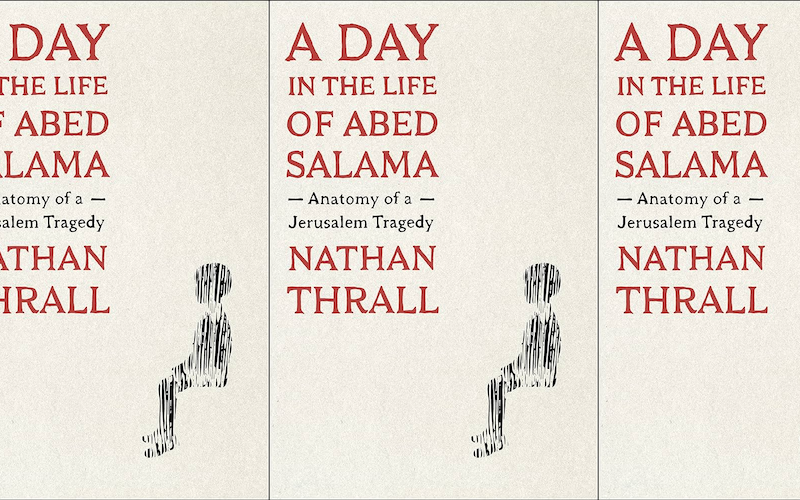
Gideon Lewis-Kraus: Everyone Needs to Read Nathan Thrall’s A Day in the Life of Abed Salama
The Must Read Book of the Current Moment
In the context of daunting, historic, and intractable problems, a humanistic approach—one that walks humbly alongside individuals as they navigate the private commotion of the everyday—can seem not only inadequate but entirely beside the point. Such a treatment can come across to the reader like an invitation to wallow in stirring but useless sentiment; to the writer, a performance in the role of the “witness” can be wholly genuine and nevertheless a little vainglorious.
One might be forgiven for thinking that Nathan Thrall’s A Day in the Life of Abed Salama were such a book. It’s ostensibly set up along those lines. Thrall, an American writer who has lived in Jerusalem for about a decade, follows a young Palestinian father as he searches for his five-year-old son, who was on an outing to a West Bank theme park in 2012 when a truck collided into his school bus, which flipped over and burst into flames.
Along the way, Thrall departs from this central narrative to convene an assembly of related ancillary characters: the Moroccan-born founder of a nearby settlement; a Palestinian doctor born in a Syrian refugee camp; an Israeli colonel who helped plan and construct Israel’s separation barrier during the Second Intifada, and so on. Each of these portraits is, as advertised and expected, profoundly “humane.”
This might have been a necessary condition for Thrall’s project, which for a variety of reasons might still best be recommended as a vivid and exceptionally well-told account of a minor tragedy of daily life anywhere, but it was hardly a sufficient one. The intimacy of the scale is deceptive, and the bus crash didn’t happen just anywhere.
Thrall’s greater aspiration for this networked cast of subjects is to sketch in anecdote an account of the architecture—both subtle and overt; both symbolic and material—that constrains the desires, choices, and dreams available to them. He is furtive with the structural.
Like J. Anthony Lukas’s Common Ground or Javier Cercas’s Anatomy of a Moment, A Day in the Life of Abed Salama is digressive narrative nonfiction as a major piece of political art.
Gideon Lewis-Kraus
Gideon Lewis-Kraus is a staff writer at The New Yorker. His first book, A Sense of Direction, was published by Riverhead.



















